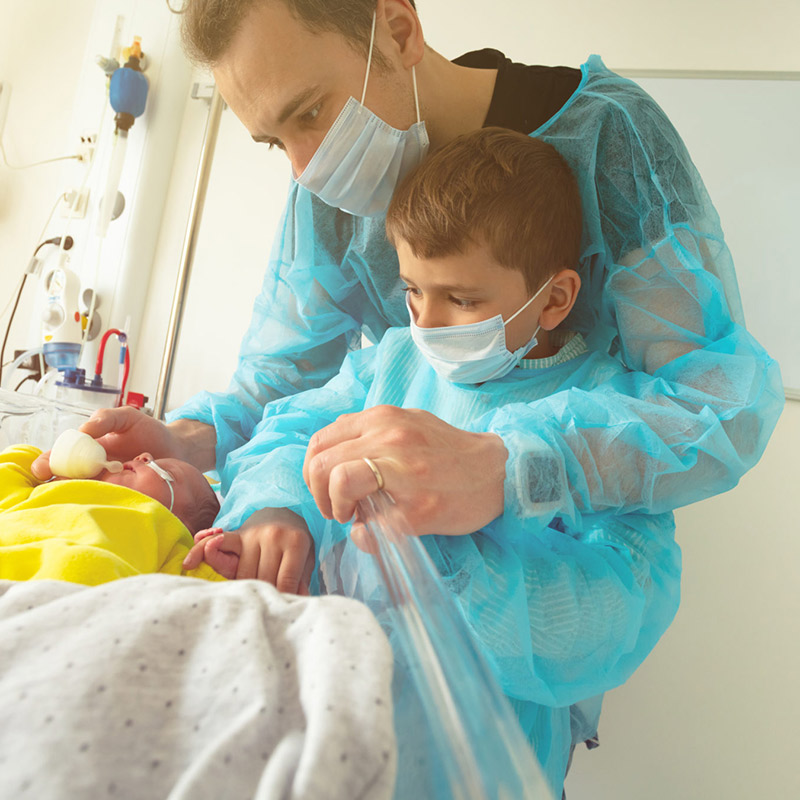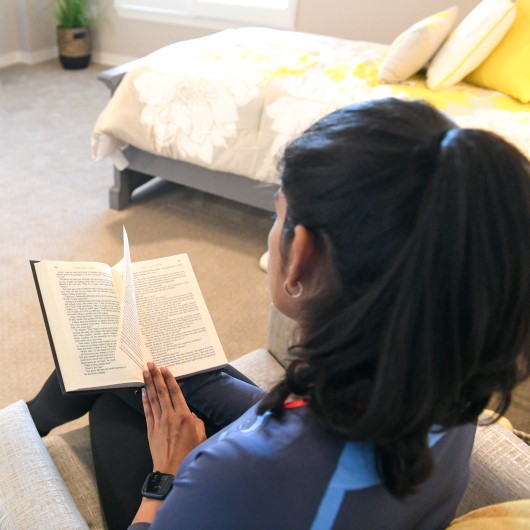The Facts About Lung Cancer Screening

August 07, 2020
Lung cancer is the leading cause of cancer-related death in the United States. But screening for lung cancer is simple and low risk, and it has a huge impact on a patient’s probability of successful treatment.
If caught early—at stage 1, before it spreads and symptoms start—the American Lung Association says the likelihood of surviving five years improves to 59 percent.
Who Should Get Screened?
According to Thomas Bauer, M.D., FACS, MBA, thoracic surgeon and chair of the Department of Surgery at Jersey Shore University Medical Center, you should get screened for lung cancer if all of these apply:
- You are between 50 and 80 years old
- You have a history of heavy smoking (20 pack years or more)
- You are a current smoker or have quit within the last 15 years
“As soon as you stop smoking, you start to reduce your risk of lung cancer. But you’re still at an elevated risk until 15 years have passed,” he says.
Because lung cancers do not cause any symptoms until later stages, it’s important for those who meet the high-risk criteria to get screened starting at age 50. From there, screening frequency is individualized depending on the initial imaging results and other factors.
How Does Lung Cancer Screening Work?
“We start by asking patients some basic questions. Based on their answers, they would get a low-dose computerized tomography [CT] scan, which has less radiation than a regular CT scan but slightly more radiation than a regular X-ray,” says Nazly Makoui Shariati, M.D., thoracic surgeon at Hackensack University Medical Center. “You’re on the table for a matter of minutes. It’s painless and quick, and we tend to get our results very quickly.”
Dr. Bauer notes that a slight risk to lung cancer screening is that some findings may not be cancer. “We are very experienced in doing this, so we are able to discern who needs to have something done and who we should follow so that we’re not intervening unnecessarily,” he says. “You wouldn’t want to go anywhere to get screened. You want to be in a program with highly skilled, educated and experienced individuals managing the program, because that minimizes your chance of having something done that is not going to help you.”
All in all, the upside to lung cancer screening is huge. “I think it is the best thing we have to offer our patients that is exceedingly simple, exceedingly low risk, and has a huge potential impact on the ability to fight lung cancer,” Dr. Bauer says.
Next Steps & Resources:
- Meet our sources: Thomas Bauer, M.D., FACS, MBA, Nazly Makoui Shariati, M.D.
- To make an appointment with a doctor near you, call 800-822-8905 or visit our website.
The material provided through HealthU is intended to be used as general information only and should not replace the advice of your physician. Always consult your physician for individual care.






